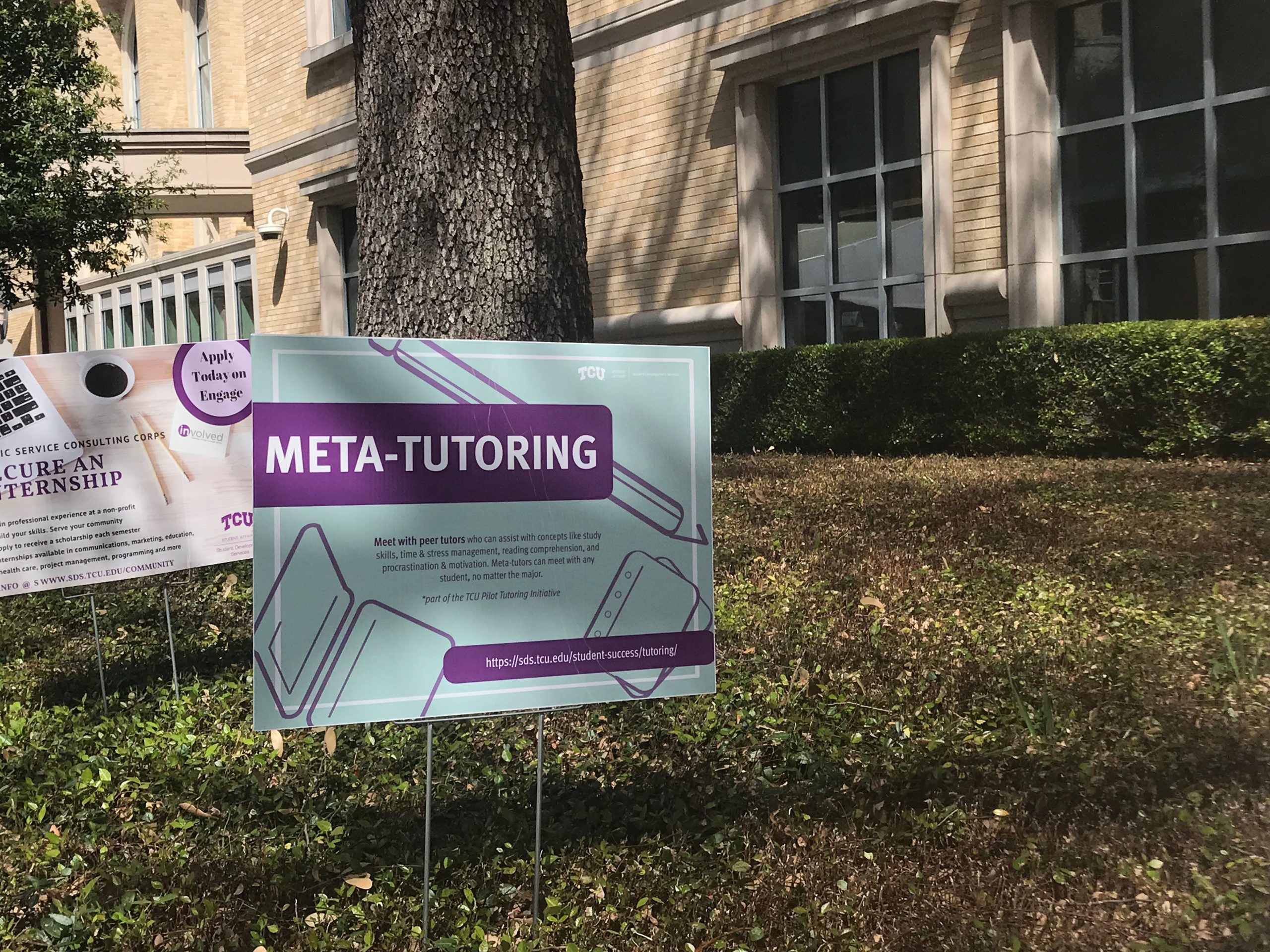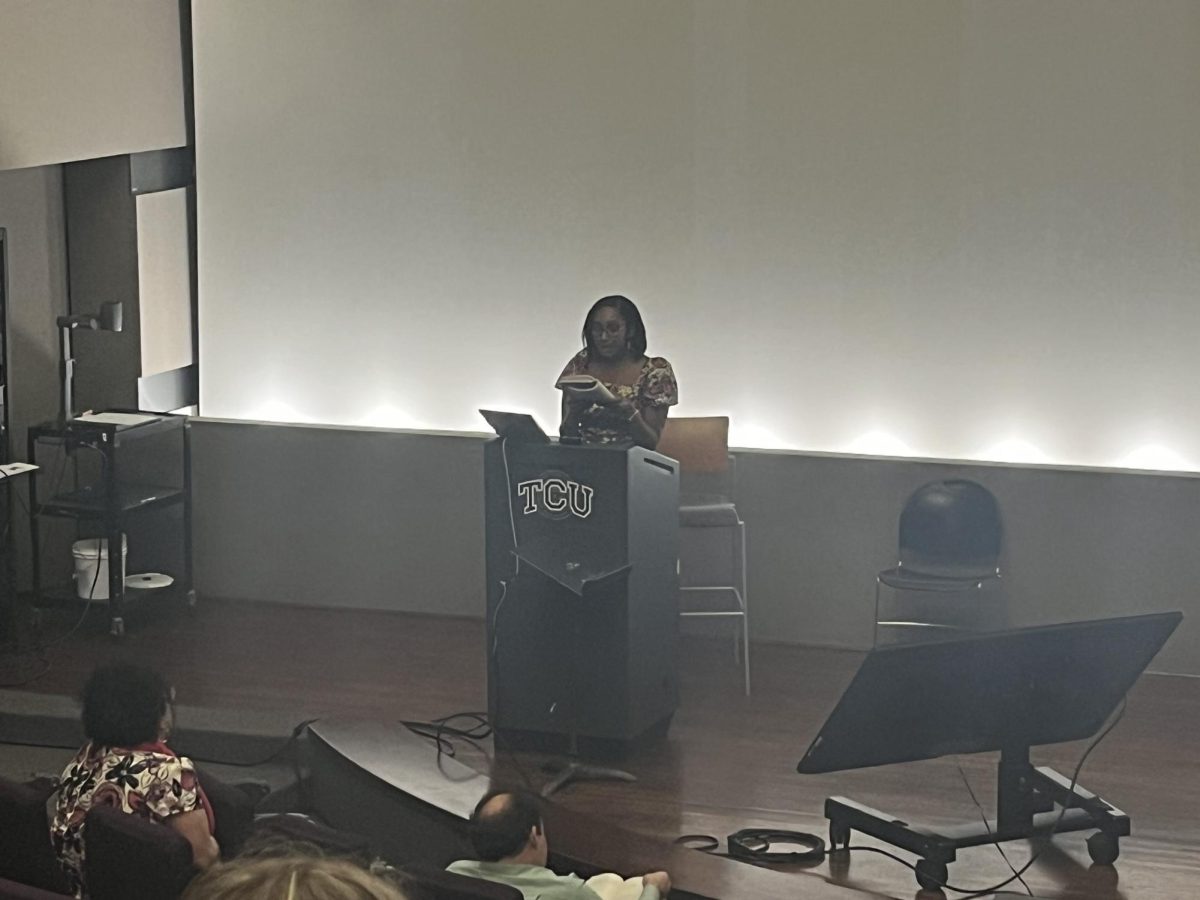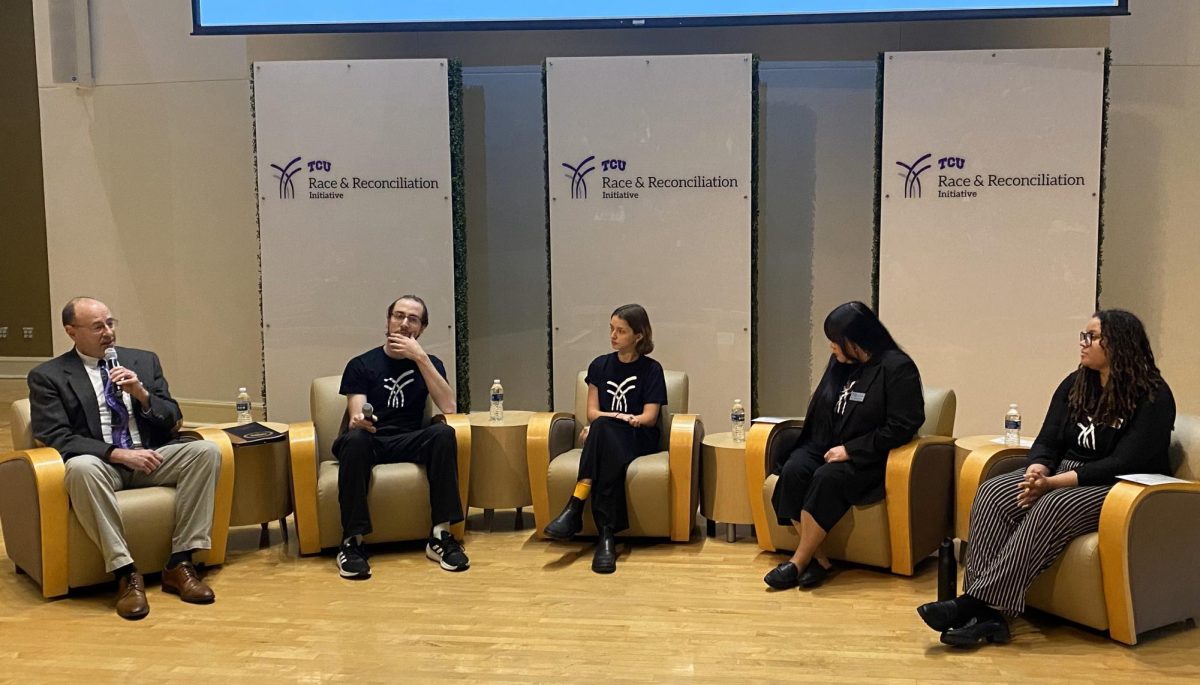New academic services for students could mean a boost in TCU’s retention rate.
TCU’s retention rate has been stuck at the 90-91% mark since 2012, according to the TCU Factbook. That number may seem high, but in comparison to Texas schools like Rice University, 97%, and the University of Texas at Austin, 95%, according to U.S. News, TCU has room to improve.
New student resources and increased use of existing ones may just be the way to do that.
One new resource on campus is Meta-Tutoring, a fledgling tutoring program through Student Development Services.
“Originally we were going to call them super tutors, and that sounded a little funny, so I said what about Meta-Tutors?” said Brianne Varela, assistant director of the sophomore and junior year experience for Student Development Services.
The program helps students with study skills, time management, communication with professors and other campus resources, she said.
“Meta-Tutors can tutor a student regardless of their major or the classes they’re taking,” said Varela.
Meta-Tutoring is just one part of TCU’s new tutoring program, which launched in January.
“A lot of people maybe didn’t realize we didn’t have a centralized tutoring program [at TCU]… and they are excited … and hope to see it continue,” said Varela.
The program is still in its pilot phase, working on accreditation from the College Reading and Learning Association.
“We obtained a list of courses that had high drop or withdraw or failure rates, [and] those are the classes we identified as really needing tutors,” said Varela.
The Pilot Tutoring Initiative is currently holding tutoring sessions on Zoom but hopes to offer the choice of online or in-person sessions for fall 2021.

Prior to this initiative, students sought out tutoring through other departments and programs. One example is TCU’s Student Support Services, a program through the U.S. Department of Education’s TRIO initiative. SSS offers tutoring and other support resources for students who qualify.
“It is harder for me to ask professors for help [with classwork],” said Lexi Carrizales, a sophomore nursing student. “Someone reached out to me … [saying] ‘Hey I know about SSS, I want to introduce you to it,’” she said.
The program has helped her in classes and beyond.
“Other than tutoring stuff, they give tips on other classes … and good advice,” Carrizales said.
Another pre-existing academic resource is the TCU Writing Center, which has been on campus since 1988.
“A place where people could come with any writing project … ranging from dissertation chapters to letters home begging for money,” said Steve Sherwood, director of the center since 2002.
The center offers one-on-one online tutoring and writing workshops, in addition to brainstorming and techniques to overcome writer’s block.
“You don’t even have to have something with you when you come to the writing center,” said Peter Christopherson, a second-year political science student and peer tutor at the center.
Christopherson uses the writing center services for his own work as well.
“When I notice things in my own writing that I do without thinking … that’s super helpful when I teach others,” he said.
With the writing center’s wide range of experts, the description of the staff sounds like the opening line of a joke.
“One retired English professor, a Minister, two PhDs,” said Sherwood. Not to mention, three novelists, an art historian and an inductee to the Georgia Writers Hall of Fame.
But students shouldn’t be afraid to come in, he said.
“My number one rule of this place [for the staff] is to be nice … it’s not like a punitive experience,” Christopherson said.
The center expects to meet in person for the fall 2021 semester.
Looking upwards
During the 2020 academic year, TCU’s retention rates made some improvement.
“The freshman retention rate is 91.7%, up slightly from 2019’s 91.3%. The retention rate among transfer students is 83.6% compared with 82.7% last year,” according to a TCU news statement from October 2020.
“Attracting and retaining such highly qualified students during an unprecedented year with unforeseen challenges, speaks to the highly strategic efforts made to connect with our students virtually, TCU’s academic reputation and the unrivaled TCU experience,” said Chancellor Boschini in the announcement. .












